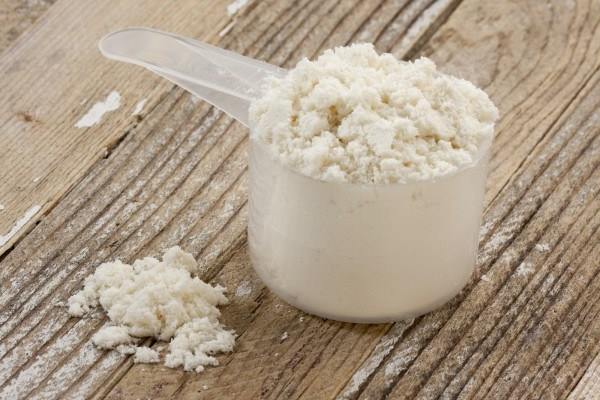Following our last Healthy Eating Workshop, I’ve had a couple of emails from people in the class asking why I am so insistent they not use whey protein. Is whey a part of dairy allergy?
The simple answer? Over many years I’ve seen too many people improve their health by simply eliminating whey protein and other cow dairy products from their diet. There is some research data that explains why whey protein is not a good food for humans, but I believe in outcomes. If people eliminate cow dairy from their diet and show improvements in their health and wellbeing, then I will continue to recommend that people remove cow dairy from their diet.
Despite my statement above, let me break down some of the main reasons why I feel whey does not do your body good:
1. Highly Processed
It helps to understand how whey protein is produced. Whey is a byproduct of milk processing that used to be thrown away. Raw whey protein is one of the most disgusting foods you can imagine and it takes a tremendous amount of processing to turn whey protein into something that anyone would ever want to eat. This highly processed food is for many people quite inflammatory. You can show this by measuring markers for inflammation in the stools of people eating whey protein.
2. Casein
Whey protein also contains a great deal of casein, another protein found in milk. Casein also causes a great deal of inflammation. Eliminating casein from the diet is a major reason why so many of the diets recommended for people with chronic disease eliminates cow dairy. Removing this from your system is crucial for wellness.
3. Mucus
Cow dairy has shown to increase mucus production in reaction to the inflammation caused by the whey and casein. I cannot even count the number of children and adults that I’ve worked with who had chronic runny noses, sinus congestion and post nasal drip – which then disappeared when they eliminated cow dairy from their diet.
4. Hormones and Antibiotics
Finally, whey protein contains unacceptable levels of the antibiotics and growth hormones fed to dairy cattle. Our bodies have enough to contend with without these added agents in the mix.
If not Whey – then What?
Instead of whey protein, use hemp seed, pea protein powder or a high quality rice bran protein in your smoothie, or when you want to increase the protein content of a meal. Many people who do not tolerate cow dairy might do okay with dairy products from sheep or goats. Sometimes these do not produce the same effects.
If you eat cow dairy products (milk, cheese, yogurt, ice cream, etc.) or use whey protein, try eliminating it 100% for four weeks and see how you feel. You might just be very pleasantly surprised. The great thing with this approach is that four weeks is achievable. You cut these things out for about a month, which we can all do if the end result is feeling better. The trade off makes perfect sense.
Again I draw from years of experience seeing these results in the people I work with. However I also hear similar stories from colleagues around the country. In the end if I see something like this work, then I will likely rely on it again and again.
An important point to remember is that you will find whey in a large number of products. I am amazed how frequently this occurs, so start checking labels on products you buy. It requires detective work, but serves you in the end.
Since whey is placed in so many different foods, it is easy for us to become over-sensitized. I feel this speaks to the heart of the issue. As with many additives, when they show up everywhere we become saturated. So even though we think we are not eating these things, we do in larger amounts than expected. Before we know it our body reacts.
Thankfully this can change.
So – Just Try It. See what happens when you go dairy free and eliminate whey. Check labels and spend a month wearing your detective hat. See what happens. Of course making sure you’re eating right, drinking plenty of water and keeping your stress level low also helps your body and mind stay strong.
After the four weeks, let us know how you did. How do you feel now? Did anything change? Sharing your experiences helps all of us learn. Leave a comment below or send us an email.
Until next time – To Your Health.

